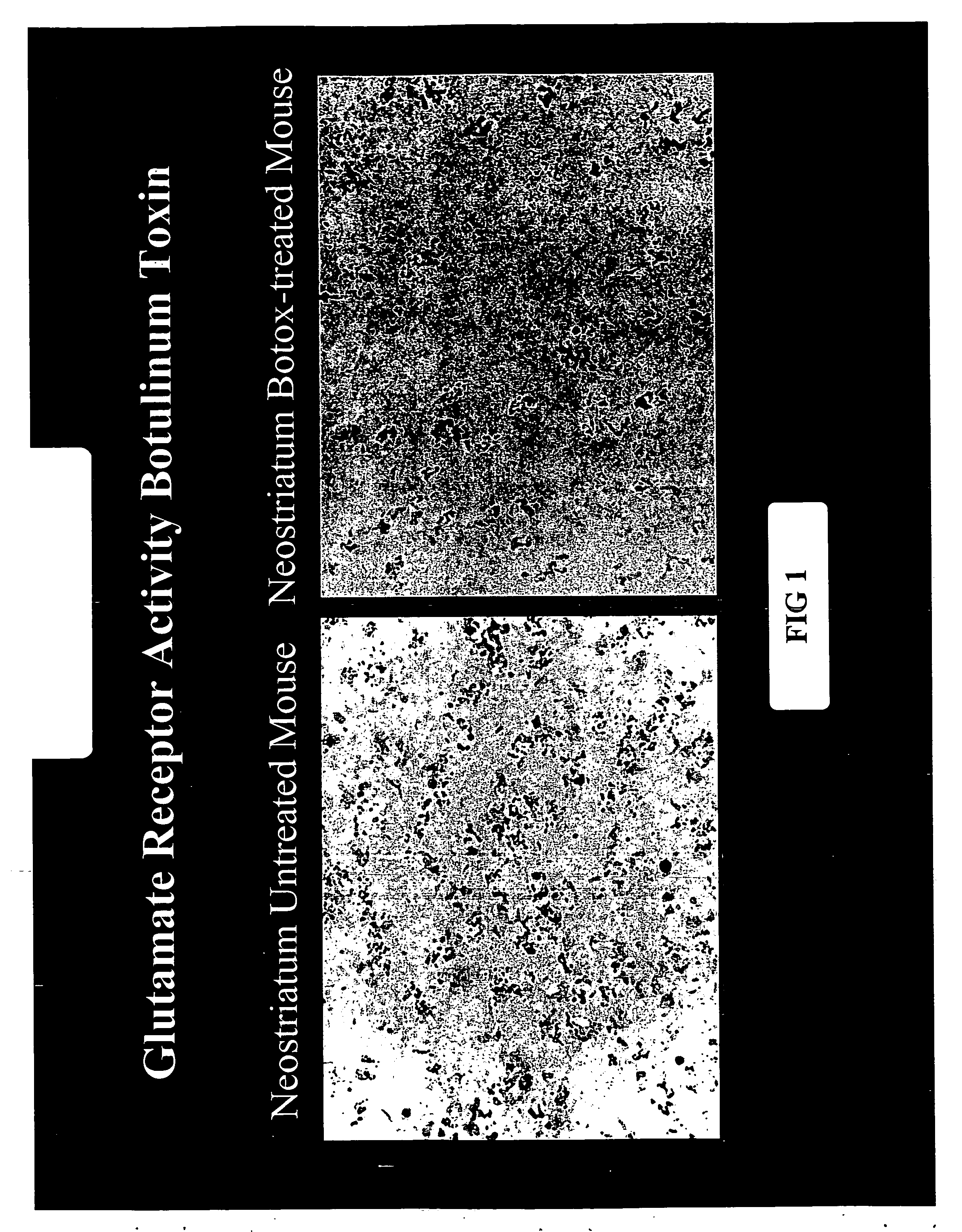Botulinum Toxin and the Treatment of Primary Disorders of Mood and Affect
a neurotoxin and mood and affect technology, applied in the field of treating primary disorders of mood and affect with neurotoxins, can solve the problems of ssris causing numerous side effects, affecting the normal functioning of the brain, so as to reduce agitation, reduce agitation, and reduce the effect of at least one central nervous system neurotransmitter
- Summary
- Abstract
- Description
- Claims
- Application Information
AI Technical Summary
Benefits of technology
Problems solved by technology
Method used
Image
Examples
example 1
[0077]A 78-year-old male who noted sleep disturbances and anxiety was initially diagnosed with blepharospasm. Botulinum toxin was administered by injection, and the subject noted improved sleep and reduced anxiety.
example 2
[0078]A 44-year-old bus driver was diagnosed with hemifacial spasm and reported symptoms of anxiety. Botulinum toxin was administered by injection. The subject noted a better ability to cope with work-related stresses and cope with difficult situations with less stress.
example 3
[0079]A 72-year-old consultant diagnosed with hemifacial spasm who reported sleep disturbances and anxiety was treated with botulinum toxin that was administered by injection. The subject reported improved sleep and reduced anxiety and less agitation.
PUM
 Login to View More
Login to View More Abstract
Description
Claims
Application Information
 Login to View More
Login to View More - R&D
- Intellectual Property
- Life Sciences
- Materials
- Tech Scout
- Unparalleled Data Quality
- Higher Quality Content
- 60% Fewer Hallucinations
Browse by: Latest US Patents, China's latest patents, Technical Efficacy Thesaurus, Application Domain, Technology Topic, Popular Technical Reports.
© 2025 PatSnap. All rights reserved.Legal|Privacy policy|Modern Slavery Act Transparency Statement|Sitemap|About US| Contact US: help@patsnap.com

